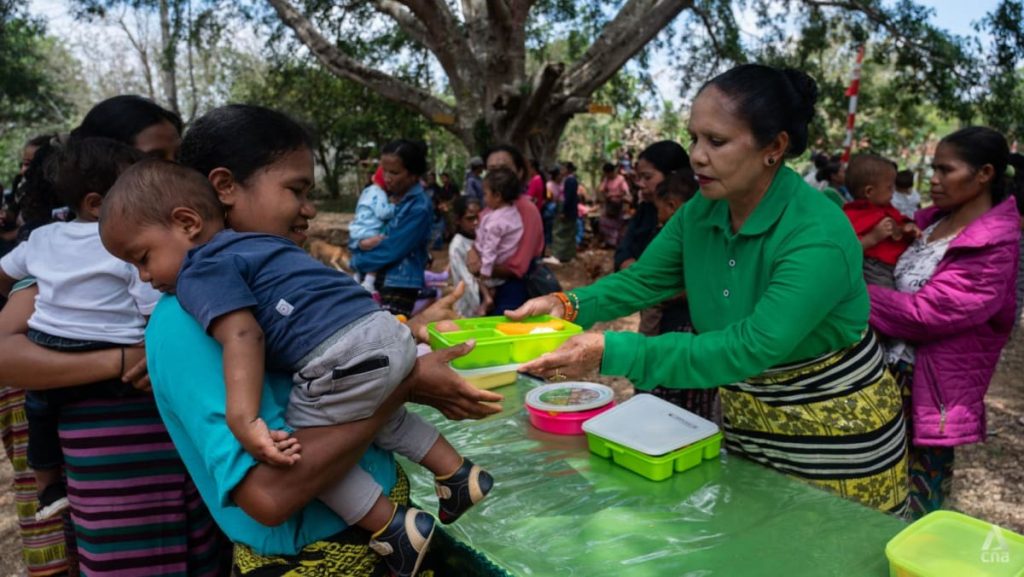Java, the island where the capital city Jakarta is located, boasts three of the largest shipping ports in Indonesia and is connected by 1,776 km of toll roads, which make up 61 percent of the country’s total toll road network. However, in stark contrast, the five provinces of Papua have a road network totaling 3,446 km, almost half of which are unpaved, making it challenging for residents to navigate by vehicle. In some remote areas, access is only possible by air or on foot, highlighting the disparities in infrastructure development across the vast archipelago.
The logistical challenges in regions like East Nusa Tenggara, an island chain bordering the Indian Ocean, pose a significant obstacle to implementing a free meal program for schoolchildren. Currently, most goods in these areas rely on ferries from Surabaya, a city in Java, which arrive infrequently – approximately once a week. With limited transportation options and remote locations, ensuring that food reaches schools and beneficiaries in a timely and cost-effective manner becomes a major concern for program organizers and stakeholders.
Some observers have identified logistics as a major hurdle to the success of the free meal initiative, expressing concerns about the difficulties faced by students and teachers in accessing education. In a recent editorial, news outlet MetroTV highlighted the challenges faced by individuals in remote areas, who often have to endanger their lives just to attend school – whether by crossing rivers on makeshift rafts or navigating unsafe bridges. This emphasizes the critical need for improved infrastructure and transportation options to support educational and welfare programs in underserved regions of the country.
Eliza Mardian, a researcher at the Center of Reform on Economics, emphasized the significant impact of high transportation costs on the overall budget for the free meal program. In areas like East Nusa Tenggara, where basic food items such as rice and beans have to be transported from production hubs in Java, transportation expenses can quickly escalate, straining limited resources. Addressing these challenges requires innovative solutions that prioritize efficient and cost-effective distribution networks to ensure that food reaches beneficiaries in a timely and sustainable manner, particularly in remote and underdeveloped regions of Indonesia.
Efforts to overcome logistical barriers and improve access to essential services in remote areas are crucial for promoting inclusive development and reducing disparities across Indonesia’s diverse geographical landscape. By investing in infrastructure upgrades, transportation networks, and supply chain efficiencies, policymakers can facilitate the effective delivery of social welfare programs like the free meal initiative while supporting economic growth and social equity. Collaboration between government agencies, private sector partners, and community stakeholders will be essential in addressing the multifaceted challenges of logistics and enhancing the resilience of Indonesia’s food distribution systems.


